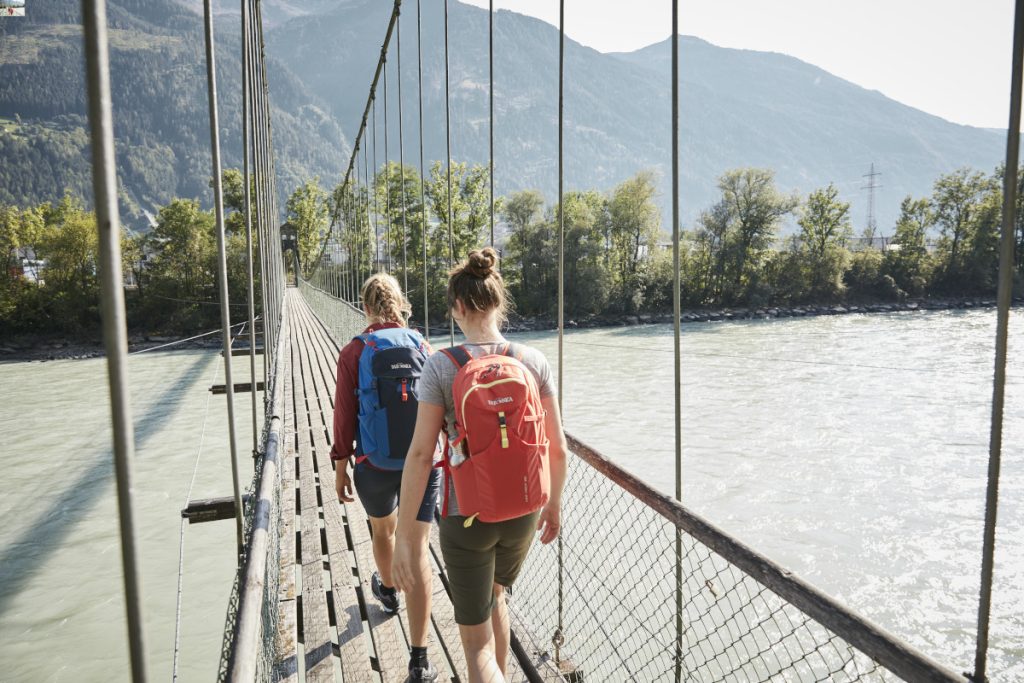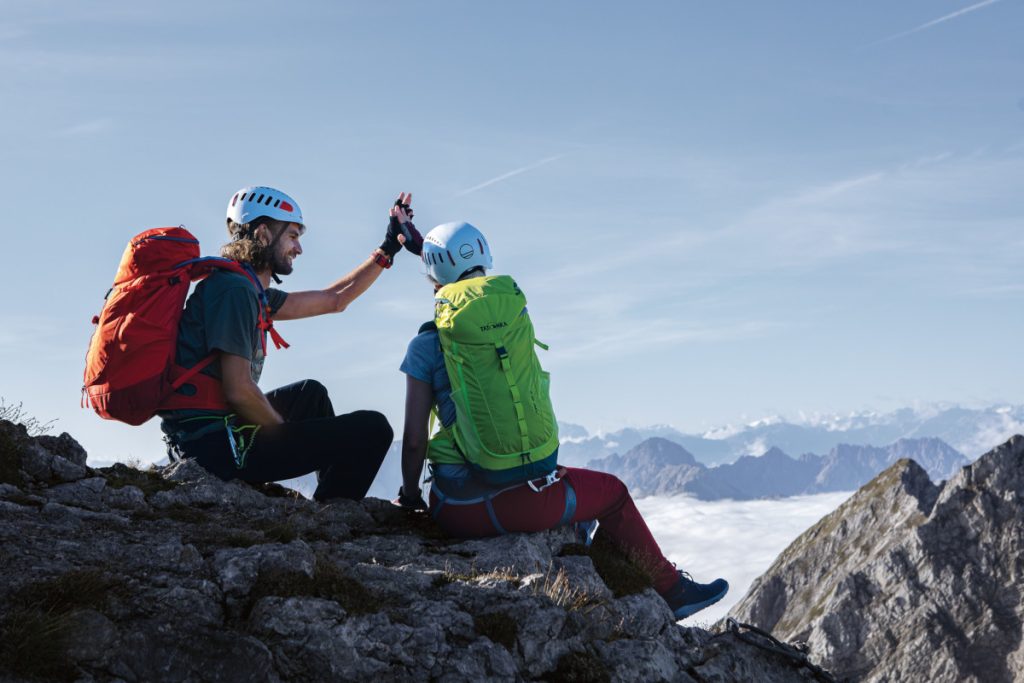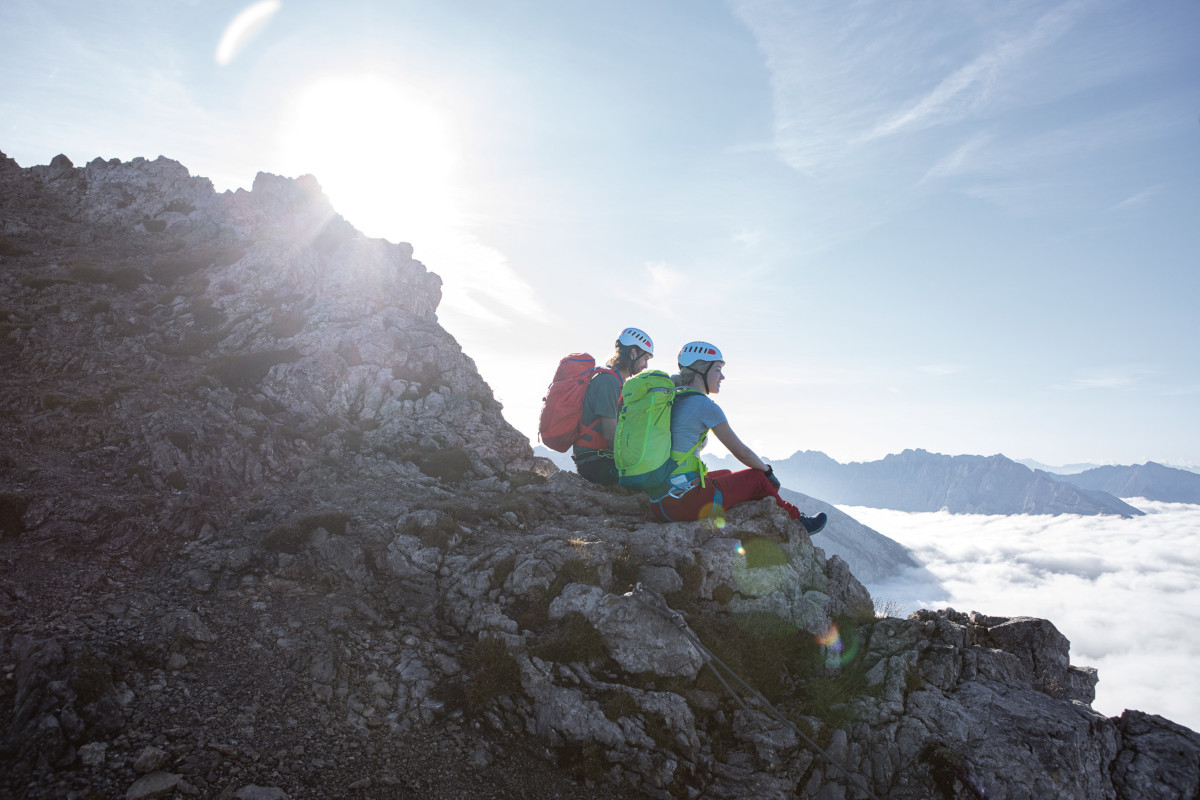Fear of heights and hiking in the mountains don’t go well together. Not just for yourself, but also for your companions, a very critical situation can arise if fear suddenly strikes in the middle of a mountain tour. This does not necessarily have to happen on an exposed ridge. Sometimes even supposedly harmless places are enough. We explain how you can best deal with a fear of heights in the mountains and overcome it in the long term.
Where does fear of heights come from?
A certain respect for heights is quite normal. It is innate and even essential for survival – after all, such a natural fear protects you from getting into dangerous situations or even falling. It is, so to speak, your body’s own warning signal, sharpens your attention and makes you act cautiously when you get close to a precipice.
However, fear of heights as a phobia (medically also called acrophobia) is triggered by a completely harmless stimulus. How strong the stimulus has to be to trigger fear of heights is different for each person. For some, the so-called “fear level” is reached after only two steps on a ladder, while others become afraid of heights on a first-floor balcony – or on a narrow hiking trail along a steep slope. There are people for whom fear of heights only occurs outdoors. For others, a fear reaction occurs even behind a safe pane of glass.
The cause of fear of heights cannot be named across the board. Basically, it can be innate as oversensitivity, but it can also be learned through a negative experience, such as an unfortunate fall in childhood. Emotional narratives of others and even films can also promote fear of heights.
By the way, fear of heights is different from what is known as vertigo. Altitude vertigo is a normal phenomenon that occurs when there are no fixed reference points in your field of vision. Your sense of balance then tries to absorb the uncertainty by swaying slightly. If you feel dizzy while hiking in the mountains, it is best to take a short break and fix your eyes on a fixed point. The feeling should then soon disappear.

Fear of heights: symptoms
Symptoms of fear of heights can escalate to their peak within a few seconds or minutes. These include shortness of breath, palpitations or racing heart, drowsiness, sweating, dizziness, chest pain or a feeling of tightness in the chest.
In addition, there is usually a fear of losing control over one’s own body, so that those affected feel as if they are about to plunge into the abyss at any moment. In some cases, such a panic attack goes so far that people fear dying and feel the need to call emergency. Even retreating to a safe distance from the abyss cannot then provide immediate relief.
Also interesting: Safety on the Mountain – Getting emergency help in the mountains
In the long term, a “fear of fear” can also develop. This is the fear of suffering another uncontrollable anxiety attack. Many people therefore avoid any situation that could trigger a fear of heights in them. But even experienced mountaineers can feel blocked by this meta-fear.
Overcoming fear of heights – is it possible?
The good news for all those who are plagued by fear of heights: Yes, you can overcome a fear of heights!
The most important thing is to face your fear. Fear of heights triggers the urgent impulse to escape the situation as quickly as possible. However, on the psychological level, the quick escape leads to the false certainty that one has actually escaped a great danger. In this way, the unfounded fear becomes more and more entrenched.
It is better to consciously leave your comfort zone – not by force, but in small steps, consistently over a longer period of time. The following techniques can help you to do this.
Techniques against acute fear of heights
If you suffer from acute fear of heights while hiking in the mountains or even get an anxiety attack, it is more than unpleasant. After all, you may not dare to go forward or back. Then the following techniques can help:
- Get a firm grip on your feet and hands.
- If possible, sit on the floor.
- Breathe in and out deeply.
- Never look down, but always look at the path or a fixed point near you.
- Talking with your hiking companion can be calming.
- Singing or whistling will distract you while keeping your breathing steady.
- A short safety rope can provide reassurance.
- If possible, stay in the situation until the fear subsides and you feel safe again. This provides a long-term exercise effect.

Preventive and long-term measures
- For practice, repeatedly go into situations that trigger a fear of heights in you and confront the fear until you feel safe (bridges, observation platforms, etc.).
- Tell people you trust about your problem and ask them to accompany you during your exercises.
- Be aware of your breath even before you are exposed. Inhale and exhale forcefully.
- Always keep your eyes on the path and not in the depths.
- You can also seek professional help from a psychologist. The German Alpine Club offers special guided hikes to overcome fear of heights.
Medication for fear of heights?
There are tranquilizers that can help against fear of heights. However, if you are traveling in the mountains, you should not take them under any circumstances! Taking sedative medications can impair your ability to react. However, when hiking in the mountains, it is essential that your senses are sharpened. Otherwise, your surefootedness will suffer and this can be life-threatening.
Moreover, even herbal remedies such as valerian or St. John’s wort are counterproductive against fear of heights in the long term. Even if they have a short-term anxiety-reducing effect, they may cause the fear of heights to become more and more entrenched in your mind and in some cases even worsen.
Summary: How to overcome your fear of heights
The best way to overcome a fear of heights is with a long-term plan. With regular exercise, your body and mind will learn that the fear you feel is unfounded. Patience with yourself is a basic requirement. It’s no use trying to do too much at once. By the way, fear of heights usually decreases on its own with age – even without active training.







